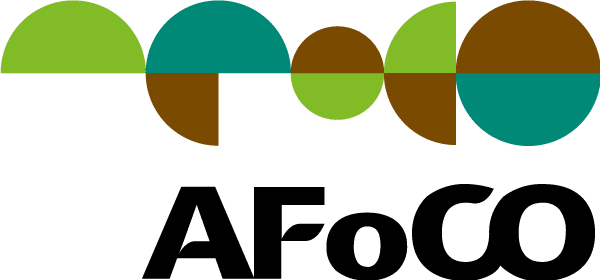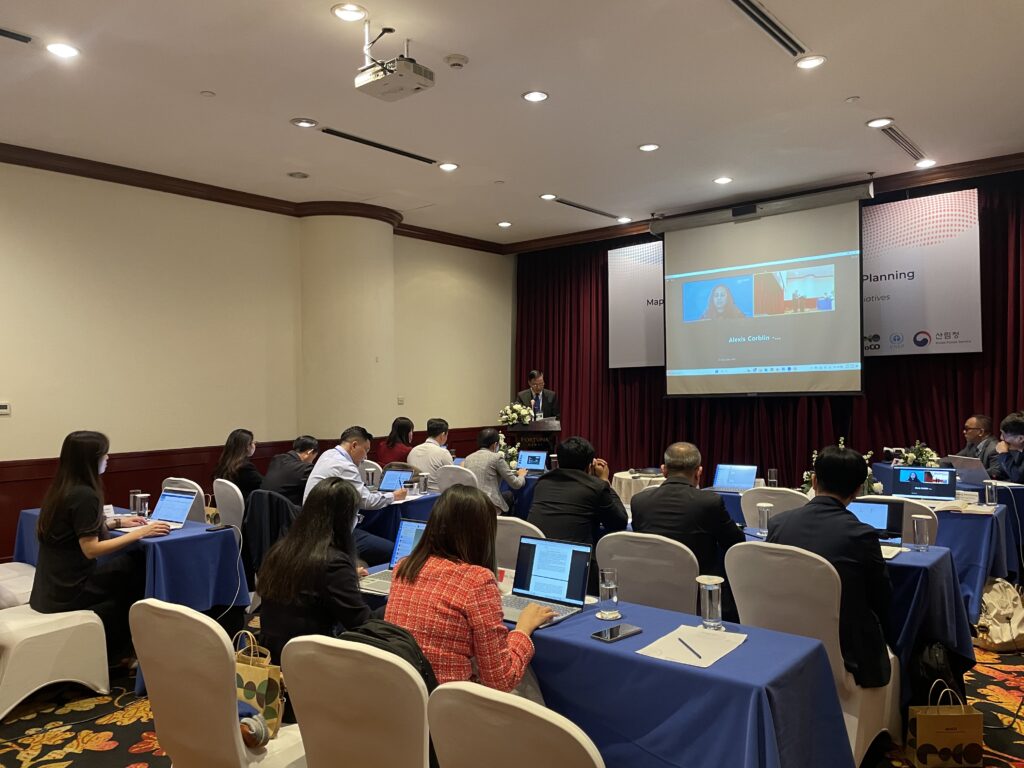
Hanoi, Viet Nam – December 5 to 7, 2023 – AFoCO successfully concluded its Technical Workshop of Output 1 for the “Sustaining an Abundance of Forest and Ecosystems (SAFE) ” Project, with a focus on promoting the expansion of healthy, resilient, and sustainably managed natural forests.
The SAFE Project, a collaborative initiative between the Korea Forest Service and the United Nations Environment Programme (UNEP), endeavors to conserve and restore vulnerable forest ecosystems with high biodiversity values in selected Asian countries. These include Cambodia, Lao PDR, Vietnam, and Bhutan (from 2024), with a focus on endangered tree species listed on the IUCN Red List. While UNEP oversees overall leadership and coordination, AFoCO, as a partner, assumes responsibility for managing Output 1, specifically concentrating on conserving and restoring vulnerable forest ecosystems in the designated Asian countries. Spanning from 2023 to 2030, the project aims to support local action, enhance livelihoods, and build capacities for sustainable forest management.
This significant event brought together a diverse group of experts specializing in forest restoration, biodiversity conservation, and community engagement. Invited speakers, UNEP Representative, selected In-country consultants from Cambodia, Lao PDR, and Viet Nam, along with the lead consultant from the Philippines, were in attendance both online and in-person.
The workshop was designed to function as a collaborative platform, fostering knowledge exchange and discussions. The primary goal was to propel the objectives of the SAFE Project forward, uniting stakeholders in a shared commitment. It aimed to gather expert insights and collective input from project implementers. Additionally, it delved into essential aspects of forest restoration and conservation, focusing on planning, implementation, and monitoring.
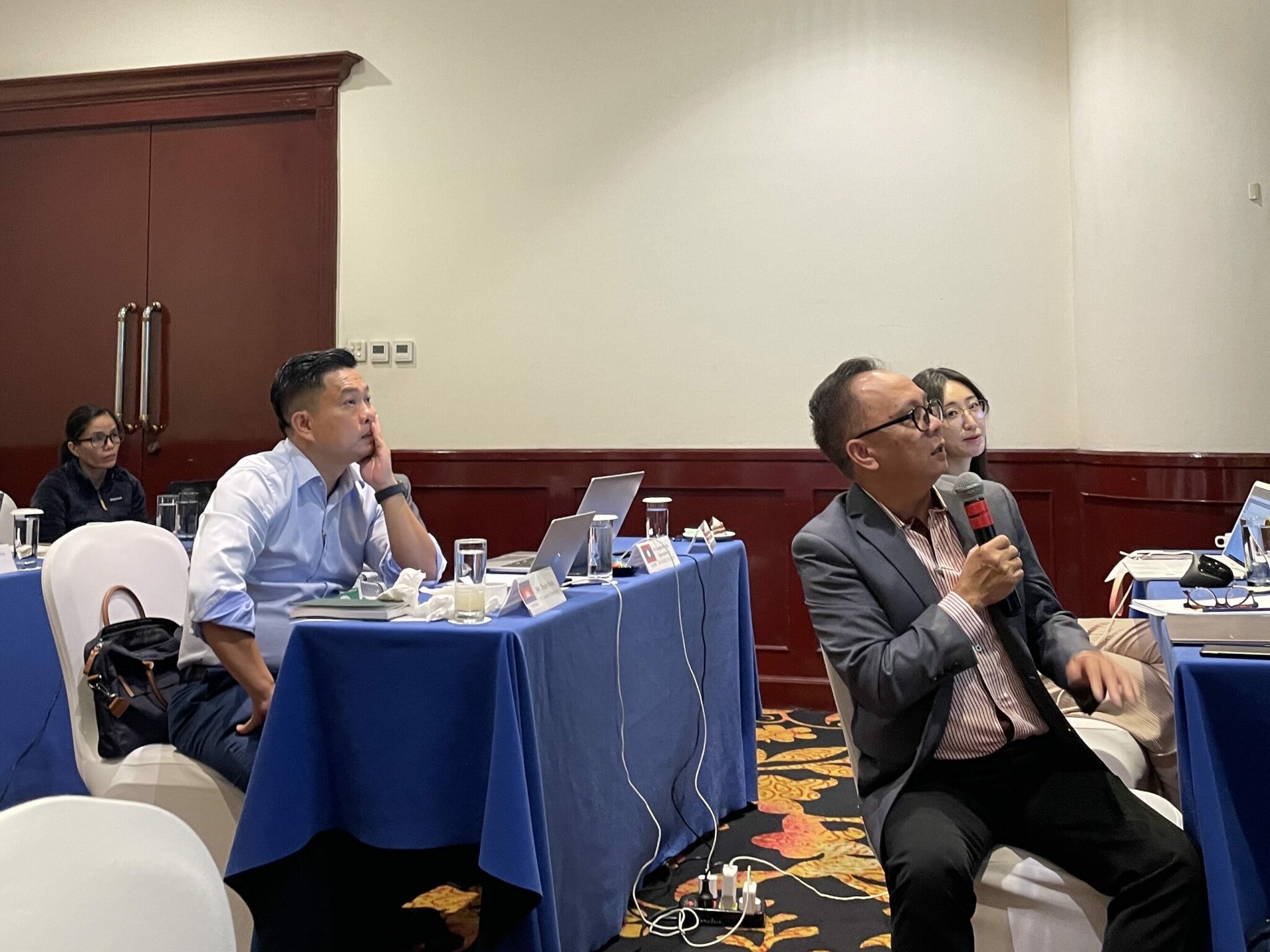
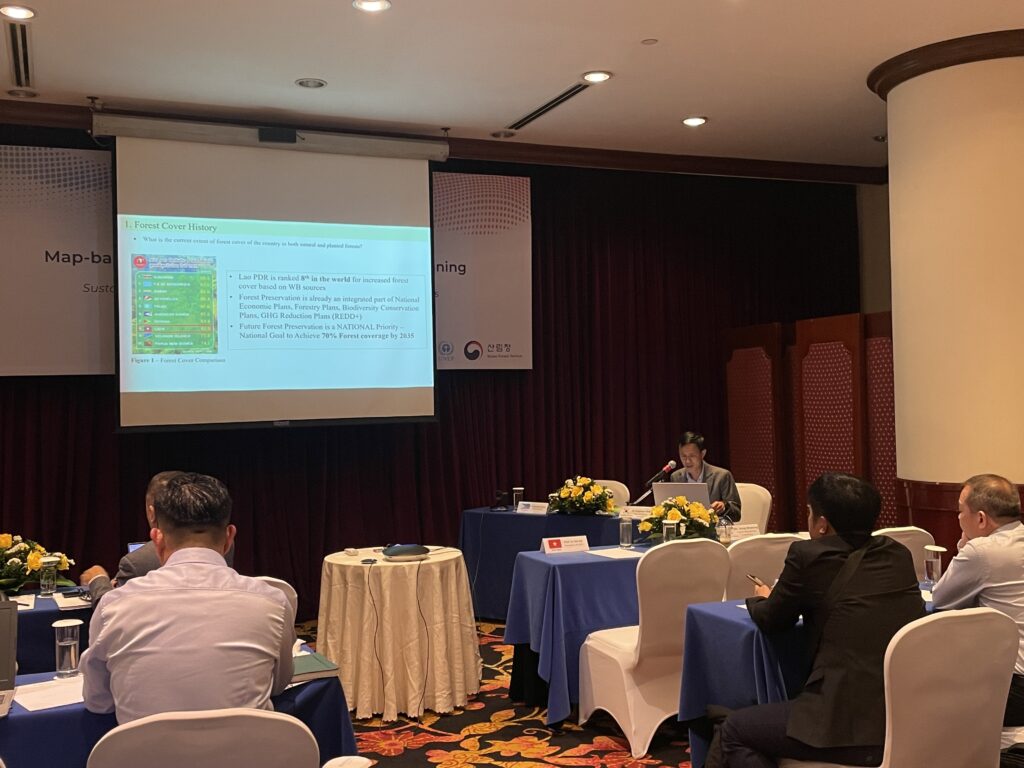
The initial day of the workshop focused on deepening the comprehension of the SAFE Initiative’s objectives and methodologies, empowering In-country consultants to formulate comprehensive plans for their forest restoration efforts. On the second day, valuable insights, recommendations, and inputs were gathered from project implementers as well as practical and proven techniques for forest restoration within the framework of biodiversity management and conservation. The presentation topics extended beyond ROAM, Map-based CFM Planning, the preliminary draft of the Baseline Report, and the In-country context of forest restoration and biodiversity conservation.
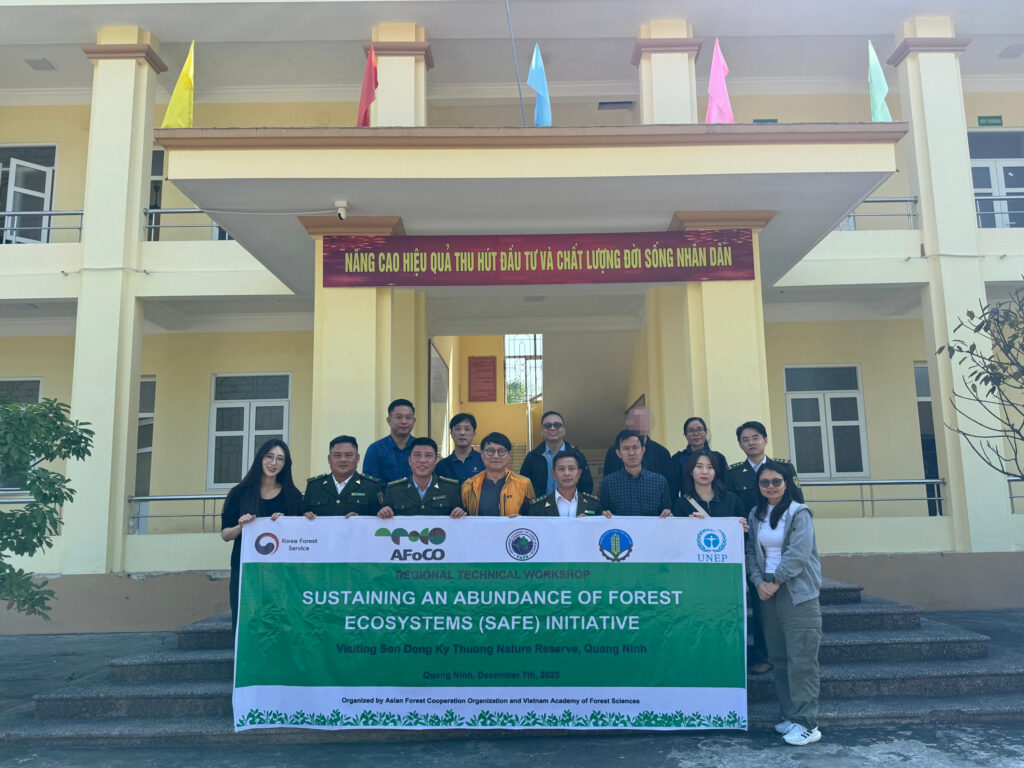
On the final day of the workshop, all participants visited Dong Son Ky Thuong Nature Reserve to gather valuable insights, lessons, and experiences. During the visit, the directors of Dong Son Ky Thuong Nature Reserve Management Board provided a comprehensive introduction to the site, complemented by an informative video. The nature reserve boasts a rich biodiversity. Among its diverse ecosystem, a total of 68 species were identified as threatened, with 20 of them listed on the IUCN’s list. This on-site exploration facilitated meaningful discussions, adding depth to the overall workshop experience and enriching the collective understanding of forest restoration and conservation practices.
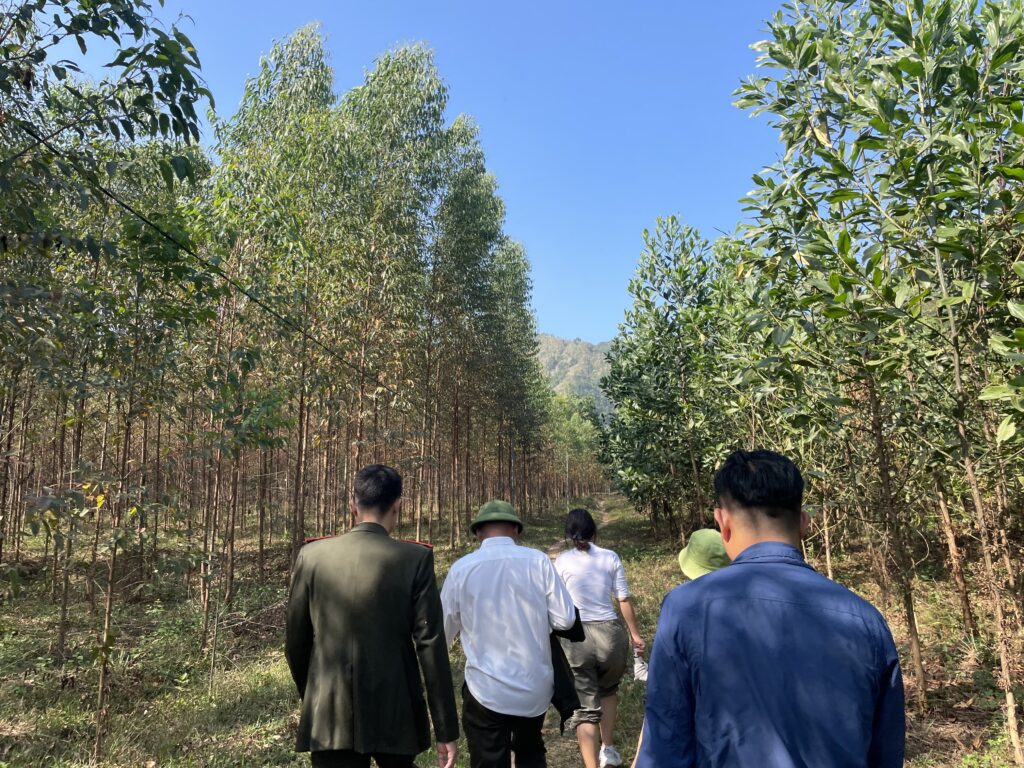
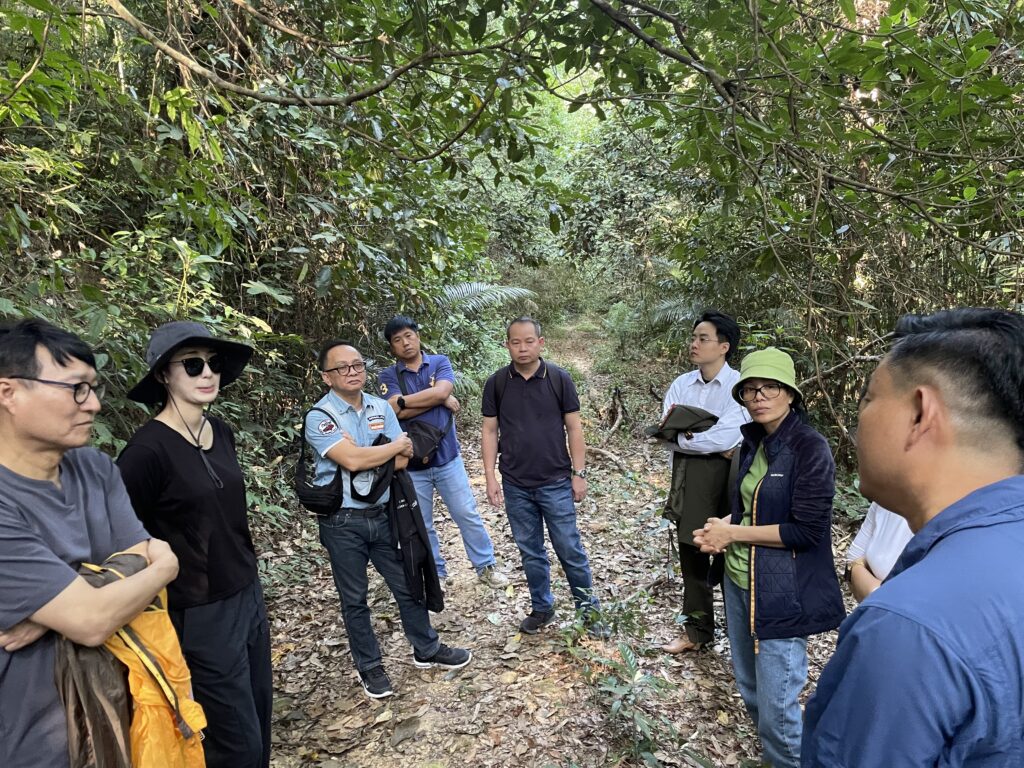
The outcomes of the workshop are anticipated to serve as a pivotal milestone in the advancement of the SAFE Project. The expertise and insights acquired during the event are expected to play a crucial role in ensuring the project’s success. The workshop facilitated collaborative discussions, knowledge sharing, and strategy development among experts, consultants and stakeholders involved in this project. The success of the workshop was significantly bolstered by the active contributions of invited speakers and participants who engaged in discussions, fostering meaningful connections. Building upon the presentations and discussions held throughout the workshop, the development of the Baseline Report is underway.
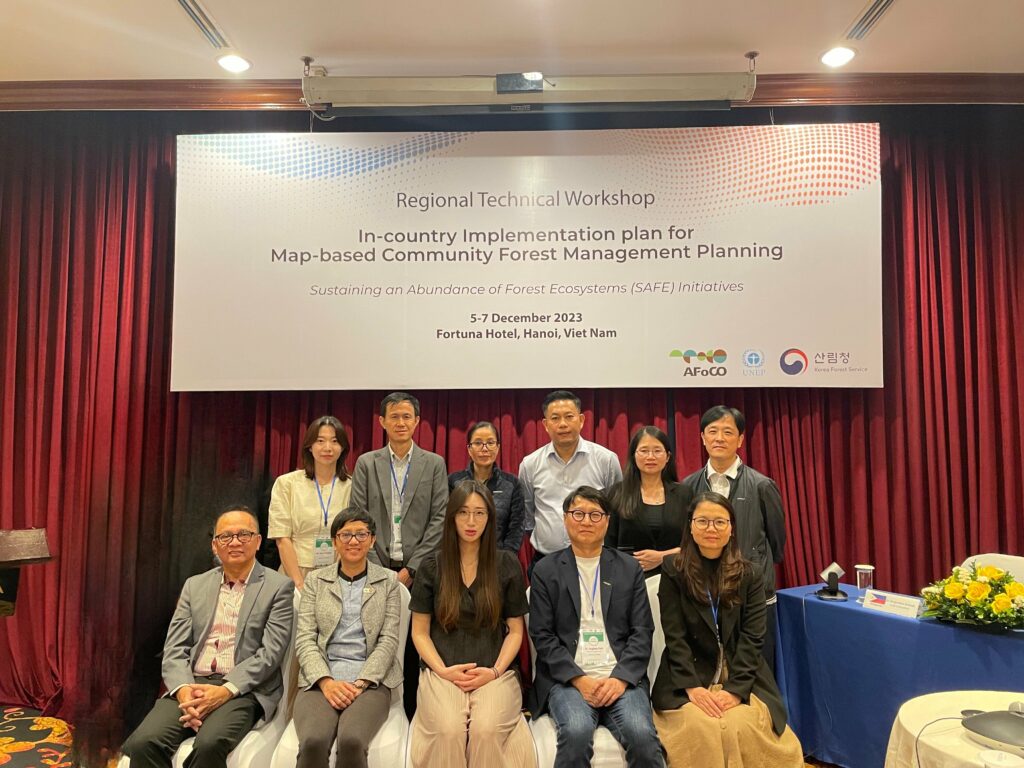
In conclusion, the workshop not only achieved its immediate goals but also laid a robust foundation for ongoing collaboration, knowledge dissemination, and the sustained success of the SAFE Project in the realm of forest restoration and conservation.
Submitted by Ms. Minyoung Jeong, Assistant Program Officer

